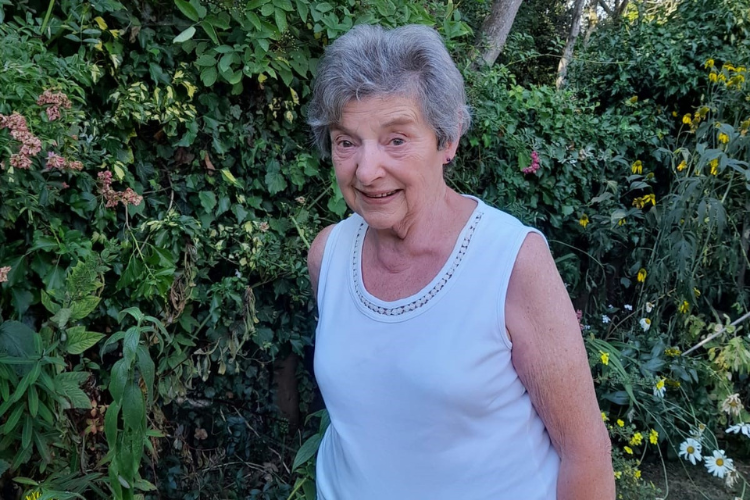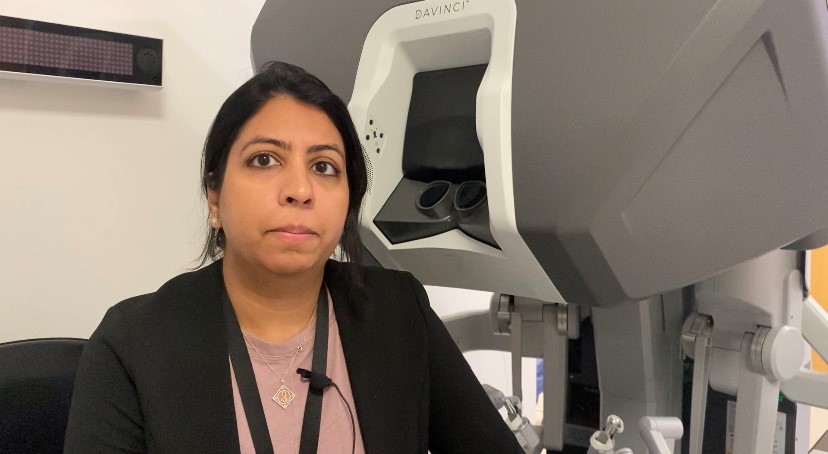The first robotic-assisted operation has taken place at Gateshead NHS – and the patient has praised her care as “amazing”.
Earlier this year, Gateshead Health NHS Foundation Trust invested £2m in a DaVinci Xi surgical robot to be used at the Queen Elizabeth hospital by the surgical teams.
And now the first patient has undergone a successful operation where the surgeon has used the robotic equipment to remove colorectal cancer.
Jean Wood, who is 80 years old and lives in Whickham, was referred to the QE’s team after a colonoscopy. She is now recovering from her surgery at home and has praised the whole process.

She says: “To anybody wondering whether this is the right type of surgery for them: “Don’t hesitate, do it. The wounds are very tiny, it’s absolutely amazing that they can do it like this. From the first morning I could get out of bed unaided and sit in a chair then walk around the room on the second day with very little discomfort.
“Since I had the operation, on the whole I feel really good. I have been able to go up and down stairs since I first got home from hospital and can now walk for half an hour without stopping. Obviously, there is sometimes a bit of pain but that’s not from the wound itself.
“My first image when I was told about a robot was like something out of Star Wars! But Ms Ali [the surgeon] explained that it’s not the robot that is doing the operation, that she is in charge the whole time. It’s just that the instruments are smaller and less invasive. I felt happy about it then.”
Oroog Ali is the consultant colorectal surgeon at the Queen Elizabeth Hospital who carried out Jean’s surgery. She said: “We’re delighted that we’ve been able to start robot-assisted surgery here in Gateshead. The surgical robot system allows us to do challenging operations using a minimally invasive technique, which comes with a reduced risk of surgical complications, meaning those having surgery will be expected to go home earlier and have a faster recovery. It will also help increase the number of people we are able to treat and provide a wide range of benefits to both patients and NHS staff.”
“I’d like to thank the whole team at Gateshead who have helped bring the benefit of robotic surgery to our patients – and we all wish Jean a continued successful recovery with our best wishes.”

And Jean has praised Ms Ali for her care and compassion throughout the process. She adds: “Her care has been spot on, to the point where she’s gone above and beyond. She rang my daughter as soon as I came out of surgery. And when she found out that I didn’t require chemotherapy, she rang me straight away rather than waiting till I came for my appointment. She’s been absolutely wonderful.”
The benefits of robotic surgery include increased precision during the operation, leading to less pain, smaller scars and less time in hospital so patients can recover quicker.
During robotic-assisted surgery, the surgeon sits at a special console in the operating theatre that provides a high-definition, 3D view inside the patient’s body. The system translates the surgeon’s hand, wrist and finger movements into precise, real-time movements of surgical instruments.